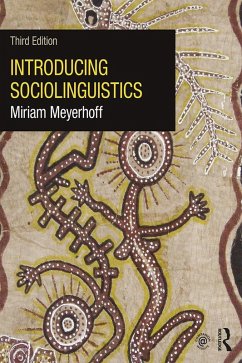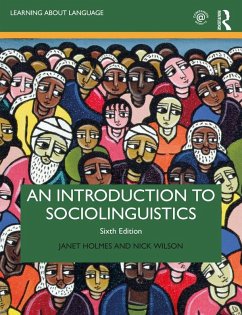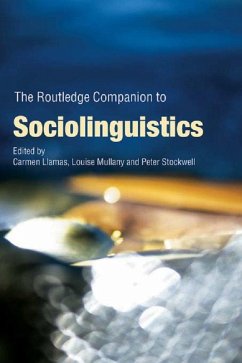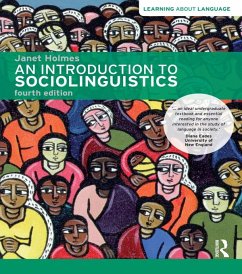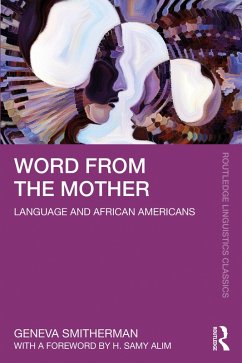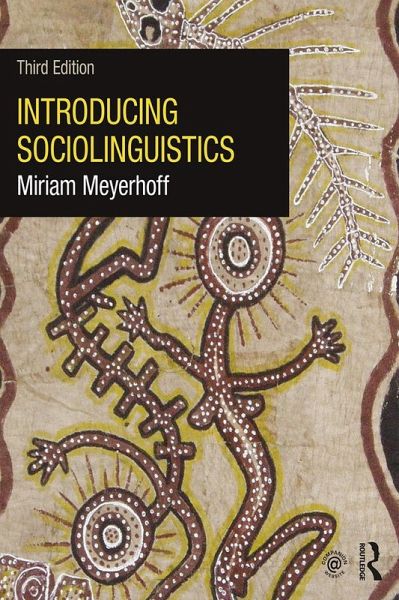
Introducing Sociolinguistics (eBook, ePUB)
Versandkostenfrei!
Sofort per Download lieferbar
42,95 €
inkl. MwSt.
Weitere Ausgaben:

PAYBACK Punkte
21 °P sammeln!
This third edition of Miriam Meyerhoff's highly successful textbook provides a solid, up-to-date appreciation of the interdisciplinary nature of the field and covers foundation issues, recent advances and current debates. It presents familiar or classic data in new ways, and supplements the familiar with fresh examples from a wide range of languages and social settings. It clearly explains the patterns and systems that underlie language variation in use, as well as the ways in which alternations between different language varieties index personal style, social power and national identity.New f...
This third edition of Miriam Meyerhoff's highly successful textbook provides a solid, up-to-date appreciation of the interdisciplinary nature of the field and covers foundation issues, recent advances and current debates. It presents familiar or classic data in new ways, and supplements the familiar with fresh examples from a wide range of languages and social settings. It clearly explains the patterns and systems that underlie language variation in use, as well as the ways in which alternations between different language varieties index personal style, social power and national identity.
New features of the third edition:
Chapters include exercises that enable readers to engage critically with the text, break-out boxes making connections between sociolinguistics and linguistic or social theory, and brief, lively add-ons guaranteed to make the book a memorable and enjoyable read. With a full glossary of terms and suggestions for further reading, this text gives students all the tools they need for an excellent command of sociolinguistics. It can also be used in conjunction with The Routledge Sociolinguistics Reader, Doing Sociolinguistics and the online resources shared by all three books.
New features of the third edition:
- Every chapter has been revised and updated with current research in the field, including material on sexuality, polylanguaging and lifespan change;
- Additional Connections with theory and Facts: No, really? are included throughout;
- Data from sign languages, historical linguistics and Asia-Pacific sociolinguistics have been revised and expanded;
- A brand new companion website featuring more examples and exercises can be found at www.routledge.com/textbooks/meyerhoff.
Chapters include exercises that enable readers to engage critically with the text, break-out boxes making connections between sociolinguistics and linguistic or social theory, and brief, lively add-ons guaranteed to make the book a memorable and enjoyable read. With a full glossary of terms and suggestions for further reading, this text gives students all the tools they need for an excellent command of sociolinguistics. It can also be used in conjunction with The Routledge Sociolinguistics Reader, Doing Sociolinguistics and the online resources shared by all three books.
Dieser Download kann aus rechtlichen Gründen nur mit Rechnungsadresse in A, B, BG, CY, CZ, D, DK, EW, E, FIN, F, GR, HR, H, IRL, I, LT, L, LR, M, NL, PL, P, R, S, SLO, SK ausgeliefert werden.




